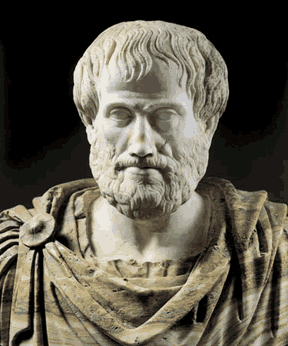
or Else

With the publication of Gerald Else’s Aristotle's Poetics: The Argument, English-speaking readers of the Poetics witnessed the emergence of a vaguely familiar and enormously insightful version of the well-worn text they had previously known largely through Samuel Henry Butcher’s 1895 translation. Else’s meticulous examination revealed a new Aristotle; one who was an avid, enthusiastic and insightful theatergoer, and who applied an elegant and organized mind to his passion for the theater. Liberated from two millennia of associations, attributions, and misunderstandings that had been grafted onto the original text, the new Aristotle was no longer encumbered by such notions as “the unities of time and place,” “catharsis as a psychological process experienced by the audience,” or the protagonist’s “tragic flaw, ” thus allowing theater theorists to build on a purer foundation.
Quite often, amendments to the Poetics served to divert the public discourse surrounding given theatrical productions away from the core work itself. While such discussions enlivened the discourse, they also resulted in undermining the impact of the plays themselves as a result of their focus on ancillary issues. In 1637, for example, the Académie française devoted itself to the matter of evaluating the purity of Pierre Corneille’s Le Cid, with regard to presumed ancient dramatic rules that included the unities of time and place. As Nicholas Boileau pointed out, the extended debate generated over the play’s compliance (or lack of it) with what were taken to be the classical rules of tragedy went quite far afield from the source of the enormous impact the play actually had on its audience. In a similar manner, Sir Laurence Olivier’s 1948 film version of Hamlet starts with an appended prologue that declares that Hamlet is “the tragedy of a man who could not make up his mind.” By focusing on what Olivier took to be Hamlet’s “tragic flaw” - his psychological impediment to revenge - the enormous complexity and density of Shakespeare’s drama is drastically diminished, and the ethical and moral issues addressed in the play become subservient to psychological ones.
Else's study of the Poetics returns our focus to what is at the heart of Aristotle's observations about tragedy. While his study is unique, it came at a time when critics were already calling for a return to a purer and more essential Aristotelian vision. A good example of such a call can be found in Francis Fergusson's The Idea of a Theater, published in 1949, which underlines Aristotle's concept of the wholeness and integrity of an effective work of drama. Like Fergusson's and Else's work, the material in this web site is intended to help bring Aristotle's observations about tragedy back into clear focus. While Gerald Else's monumental study has provided much of the backbone for this site, there is also an attempt made here to enlarge the context beyond the confines of ancient Greek tragedy. Above all, we aspire to provide a sense of how the concepts promoted by Aristotle in the sections of the Poetics devoted to character and plot form a neatly interlocking complex of ideas and understandings about the nature of tragedy.
This site includes frequent quotes from the Poetics (presented in bold lettering). The English translations included are a hybrid composed mostly of Butcher's text for the sake of familiarity, Else's translation for accuracy, and James Bierman's (the site's author) for compatibility with theatrical terminology. The Greek text cited here came from The Perseus Digital Library (ed. R. Kassel, Aristotle's Ars Poetica. Oxford, Clarendon Press. 1966.), an enormously useful resource.